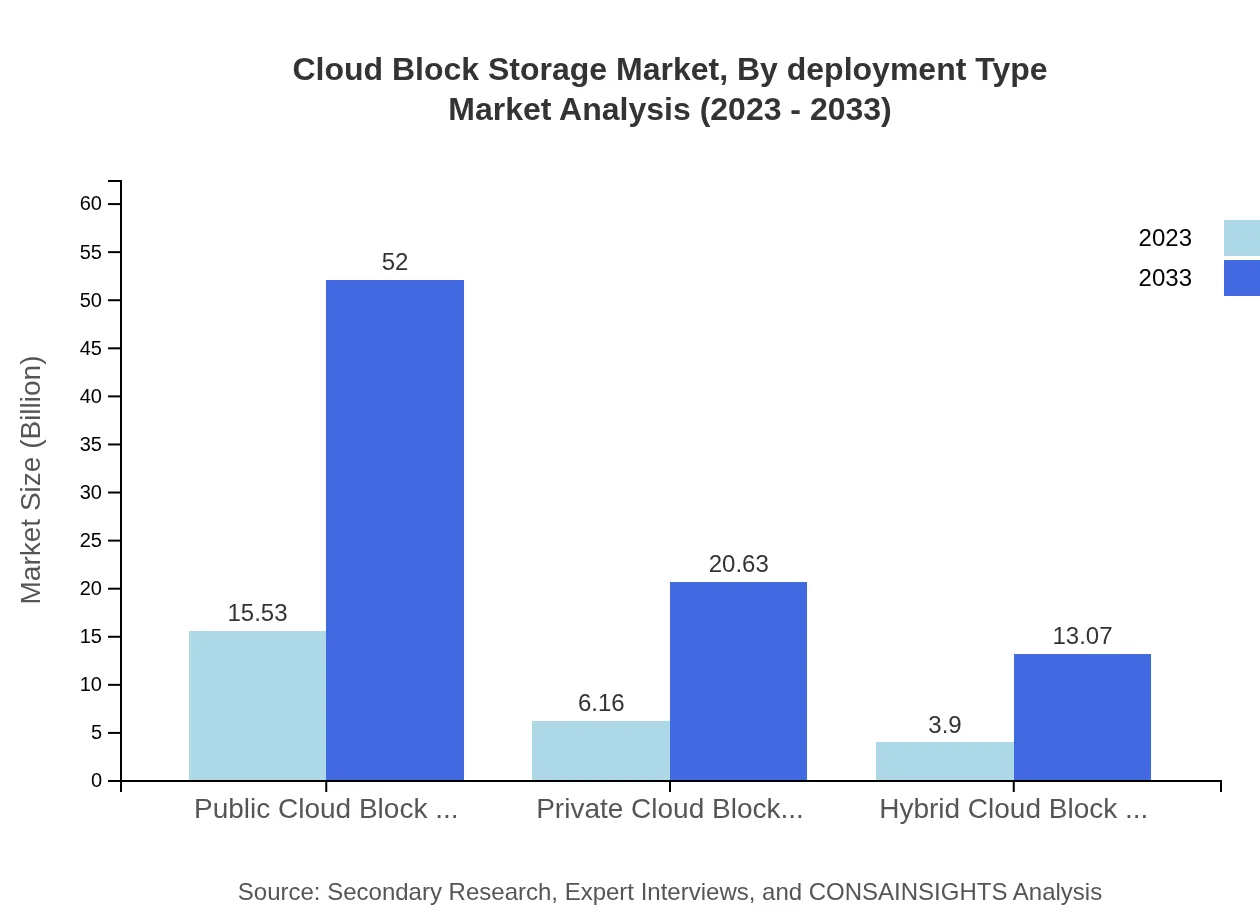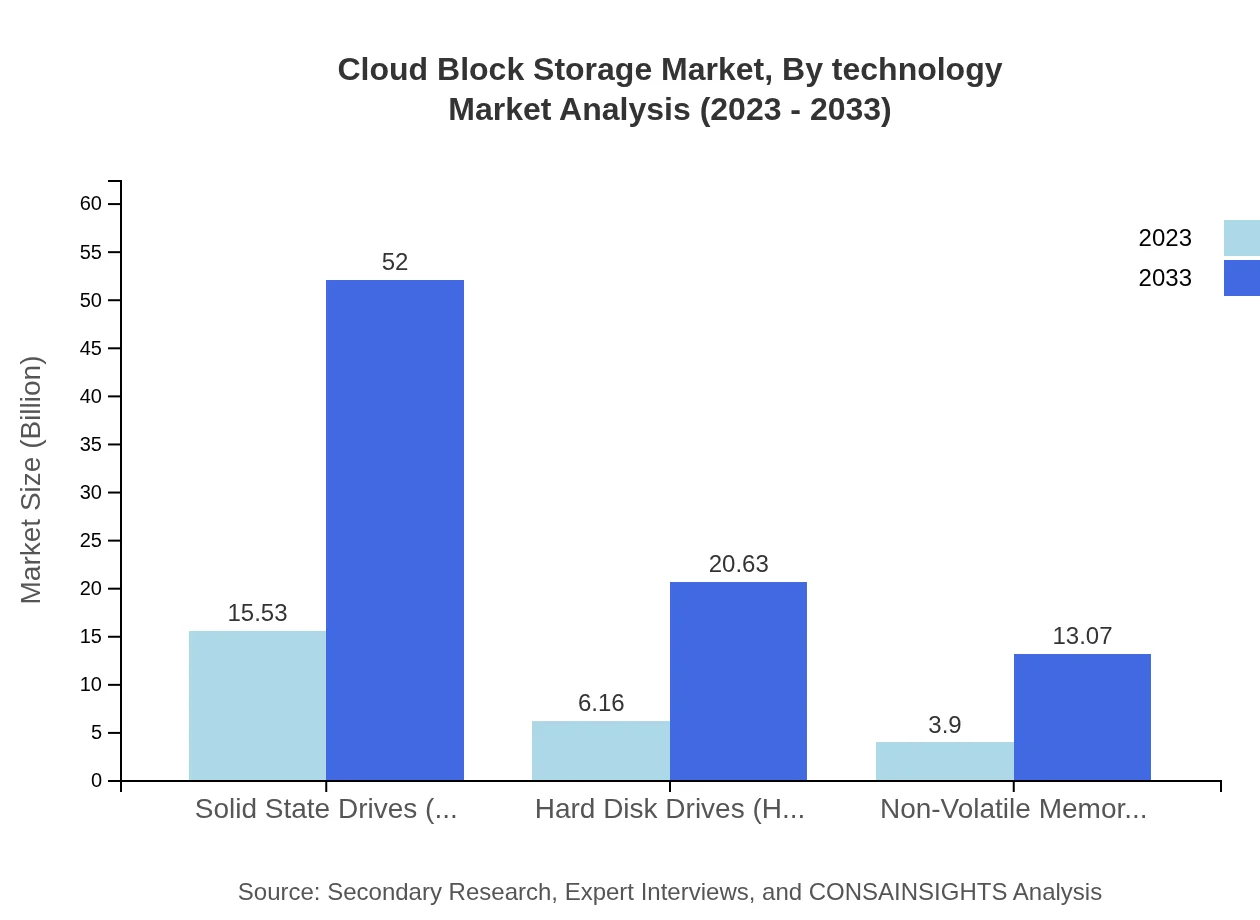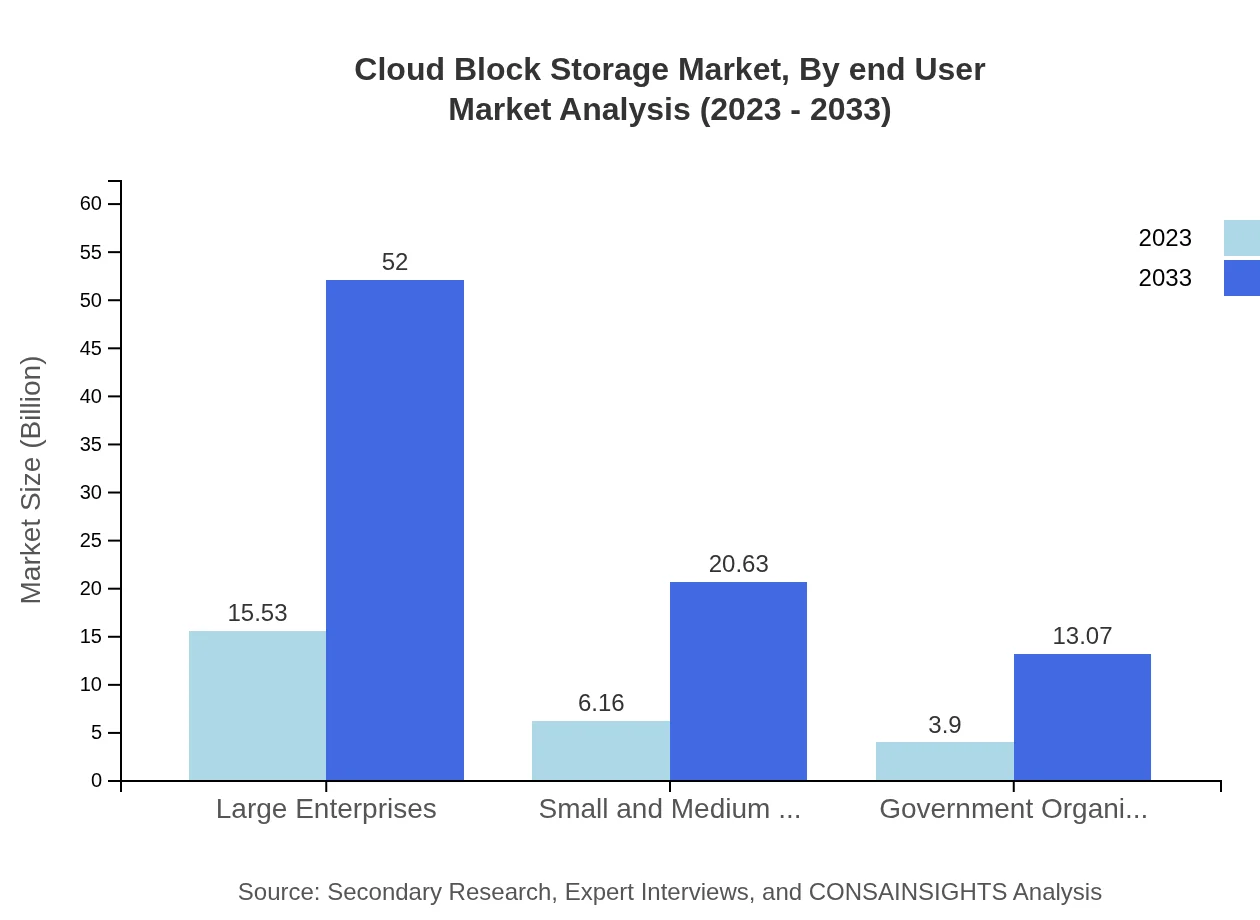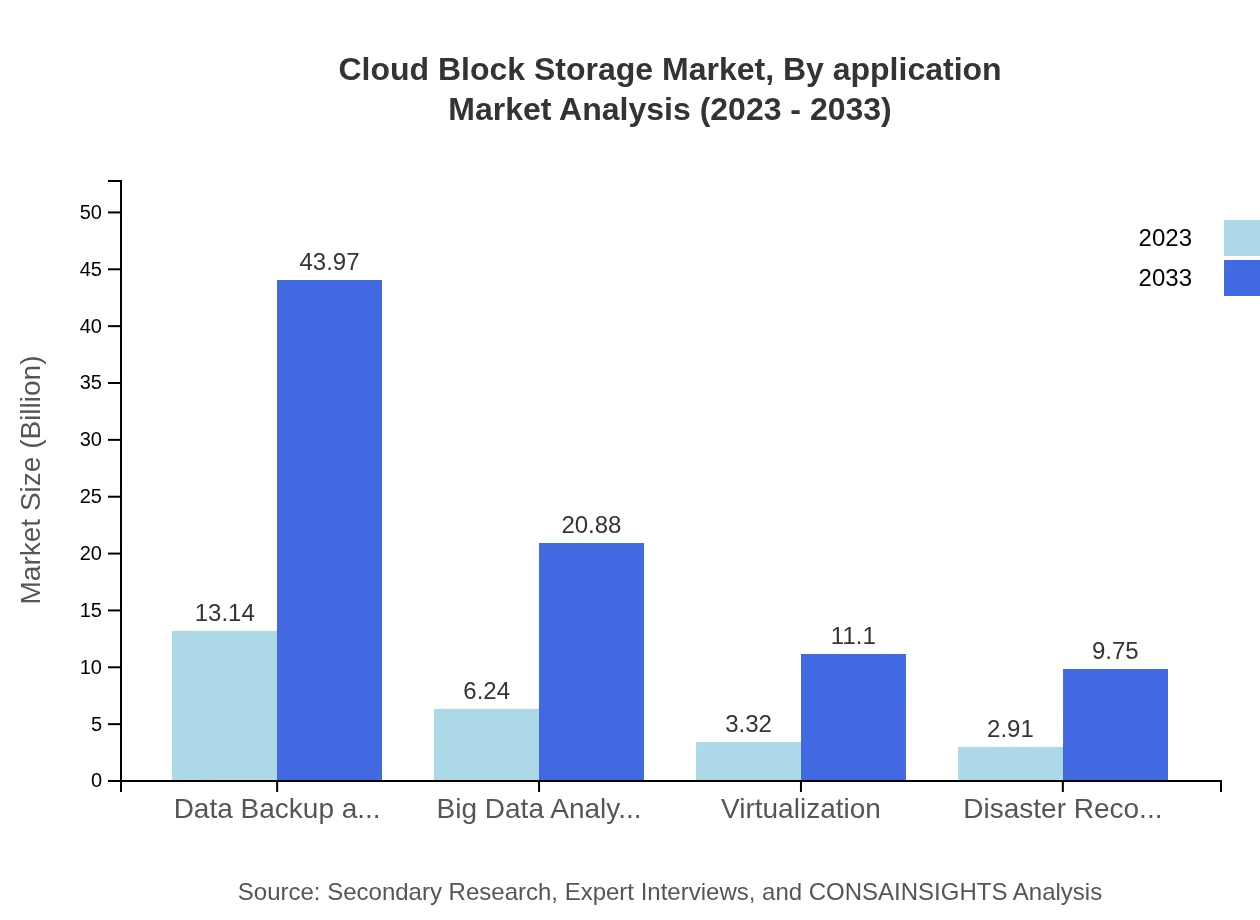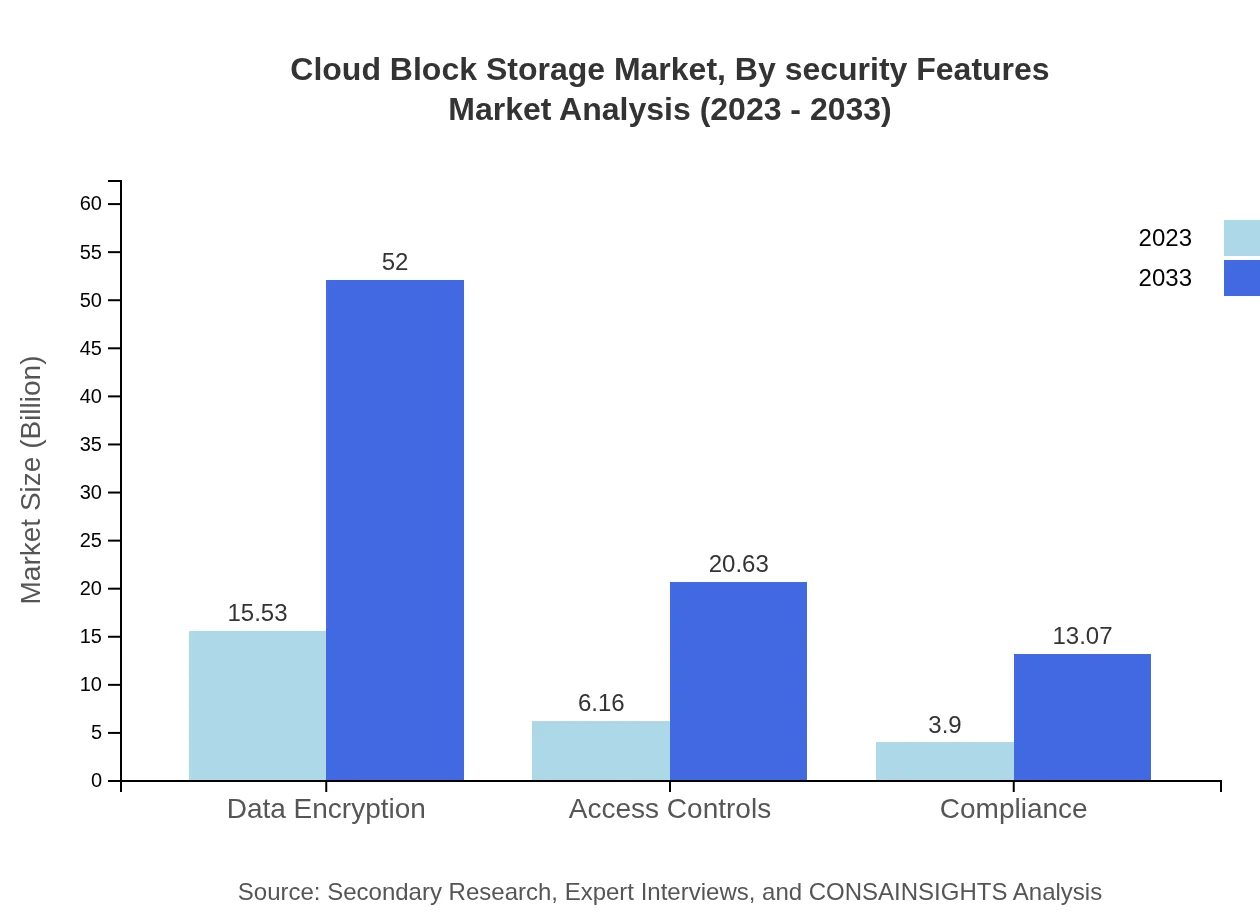Cloud Block Storage Market Report
Published Date: 31 January 2026 | Report Code: cloud-block-storage
Cloud Block Storage Market Size, Share, Industry Trends and Forecast to 2033
This report provides a comprehensive analysis of the Cloud Block Storage market, examining critical trends, market size, and forecasts from 2023 to 2033. Insights into technology trends, regional performances, and competitive landscape are included to offer a holistic view of the market.
| Metric | Value |
|---|---|
| Study Period | 2023 - 2033 |
| 2023 Market Size | $25.60 Billion |
| CAGR (2023-2033) | 12.3% |
| 2033 Market Size | $85.70 Billion |
| Top Companies | Amazon Web Services (AWS), Microsoft Azure, Google Cloud Platform (GCP), IBM Cloud, Alibaba Cloud, Oracle Cloud |
| Last Modified Date | 31 January 2026 |
Cloud Block Storage Market Overview
Customize Cloud Block Storage Market Report market research report
- ✔ Get in-depth analysis of Cloud Block Storage market size, growth, and forecasts.
- ✔ Understand Cloud Block Storage's regional dynamics and industry-specific trends.
- ✔ Identify potential applications, end-user demand, and growth segments in Cloud Block Storage
What is the Market Size & CAGR of Cloud Block Storage market in 2023?
Cloud Block Storage Industry Analysis
Cloud Block Storage Market Segmentation and Scope
Tell us your focus area and get a customized research report.
Cloud Block Storage Market Analysis Report by Region
Europe Cloud Block Storage Market Report:
In Europe, the market is forecasted to increase from $7.11 billion in 2023 to $23.79 billion by 2033, driven largely by the region’s focus on data protection regulations and a strong demand for backup and disaster recovery solutions. The shift towards remote work and the digital economy is further propelling storage solution adoption.Asia Pacific Cloud Block Storage Market Report:
In Asia Pacific, the Cloud Block Storage market is projected to grow from $4.91 billion in 2023 to $16.43 billion by 2033, driven by increased cloud adoption and the demand for big data analytics and storage solutions. Countries like India and China are significant contributors, with rapid digitalization and government initiatives promoting cloud investments.North America Cloud Block Storage Market Report:
North America holds a significant share of the market, projected to rise from $8.78 billion in 2023 to $29.40 billion by 2033. The dominance of major cloud service providers, together with advancements in data management technologies and increased enterprise migration to cloud solutions, underpins this growth.South America Cloud Block Storage Market Report:
The South American market is expected to grow from $1.47 billion in 2023 to $4.93 billion by 2033. Factors such as the growing need for data centers and the adoption of hybrid cloud solutions are driving this market forward. Increasing investments in IT infrastructure by governments and private enterprises will further support market expansion.Middle East & Africa Cloud Block Storage Market Report:
The Cloud Block Storage market in the Middle East and Africa is expected to grow from $3.33 billion in 2023 to $11.16 billion by 2033. The rise of digital transformation initiatives and increasing demand for data storage solutions in various sectors like telecommunications and government are key drivers of this growth.Tell us your focus area and get a customized research report.
Cloud Block Storage Market Analysis By Deployment Type
By deployment type, the Cloud Block Storage market consists of public, private, and hybrid models. Public cloud storage, with a market size of $15.53 billion in 2023, is expected to grow to $52 billion by 2033, accounting for 60.68% share. Private cloud storage is growing from $6.16 billion to $20.63 billion, holding a 24.07% market share. Hybrid models, showing notable growth as businesses adopt flexible strategies, are set to expand from $3.90 billion to $13.07 billion, holding a 15.25% share in 2033.
Cloud Block Storage Market Analysis By Technology
In terms of technology, SSDs lead with $15.53 billion in 2023 and are expected to reach $52 billion by 2033, representing 60.68% market share. HDDs grow from $6.16 billion to $20.63 billion, holding 24.07% share, while NVMe technology, gaining traction for its speed and efficiency, is set to expand from $3.90 billion to $13.07 billion, accounting for 15.25% share.
Cloud Block Storage Market Analysis By End User
The end-user segment is categorized into large enterprises, SMBs, and government organizations. Large enterprises dominate with a market size of $15.53 billion in 2023, expanding to $52 billion by 2033 (60.68% share). Small and Medium Businesses follow, growing from $6.16 billion to $20.63 billion (24.07% share), while government organizations grow from $3.90 billion to $13.07 billion (15.25% share) due to increased IT spending on cloud solutions.
Cloud Block Storage Market Analysis By Application
Major applications driving the Cloud Block Storage market include Data Backup and Recovery, Big Data Analytics, Virtualization, and Disaster Recovery. Data Backup and Recovery leads with a significant size of $13.14 billion expanding to $43.97 billion by 2033 (51.31% share). Big Data Analytics is growing from $6.24 billion to $20.88 billion (24.36%), while Virtualization and Disaster Recovery also show promising growth within the segment.
Cloud Block Storage Market Analysis By Security Features
Security features are integral to the Cloud Block Storage market, including Data Encryption, Access Controls, and Compliance. Data Encryption is crucial, projected to expand from $15.53 billion in 2023 to $52 billion in 2033 (60.68% share). Access Controls grow from $6.16 billion to $20.63 billion (24.07%), while compliance requirements push the market from $3.90 billion to $13.07 billion (15.25%).
Cloud Block Storage Market Trends and Future Forecast
Tell us your focus area and get a customized research report.
Global Market Leaders and Top Companies in Cloud Block Storage Industry
Amazon Web Services (AWS):
AWS leads the market with its vast array of services, including S3 and EBS, providing scalable storage at competitive prices. Their continuous innovation in cloud technology keeps them at the forefront.Microsoft Azure:
Azure offers extensive cloud services, including Blob Storage, and emphasizes security and compliance for enterprises, making it a preferred choice for companies migrating to the cloud.Google Cloud Platform (GCP):
GCP provides a robust cloud storage offering with solutions like Persistent Disk and Cloud Storage, focusing on data analytics capabilities, making it attractive for data-driven organizations.IBM Cloud:
IBM Cloud offers integrated cloud solutions, emphasizing hybrid cloud storage, catering to enterprises looking for secure and compliant storage options.Alibaba Cloud:
Alibaba Cloud is a significant player in Asia, providing innovative storage solutions tailored for businesses in the region, focusing on scalability and performance.Oracle Cloud:
Oracle Cloud provides specialized storage solutions that integrate seamlessly with its database services, appealing to enterprises that need reliable and efficient storage options.We're grateful to work with incredible clients.









FAQs
What is the market size of cloud Block Storage?
The cloud block storage market is valued at approximately $25.6 billion in 2023, with a projected CAGR of 12.3% through 2033, indicating robust growth driven by increasing cloud adoption across various sectors.
What are the key market players or companies in the cloud Block Storage industry?
Key players in the cloud block storage industry include Amazon Web Services, Microsoft Azure, Google Cloud, IBM Cloud, and Oracle. These companies dominate the market by providing innovative storage solutions.
What are the primary factors driving the growth in the cloud Block Storage industry?
The growth of the cloud block storage industry is driven by rising demand for scalable storage solutions, increasing enterprise digitalization, and advancements in cloud technologies that offer enhanced performance and security.
Which region is the fastest Growing in the cloud Block Storage market?
The Asia Pacific region is the fastest-growing in the cloud block storage market, expected to expand from $4.91 billion in 2023 to $16.43 billion by 2033, reflecting rapid technological adoption.
Does ConsaInsights provide customized market report data for the cloud Block Storage industry?
Yes, ConsaInsights offers customized market report data specifically tailored to the cloud block storage industry, enabling clients to gain insights aligned with their unique requirements and strategies.
What deliverables can I expect from this cloud Block Storage market research project?
Deliverables from the cloud block storage market research project include comprehensive market analysis, segmentation insights, trend reports, competitive landscape evaluations, and forecasts with actionable recommendations.
What are the market trends of cloud Block Storage?
Current trends in cloud block storage include increased adoption of hybrid storage solutions, growing emphasis on data security and compliance, and the rise of AI-driven storage management tools.


